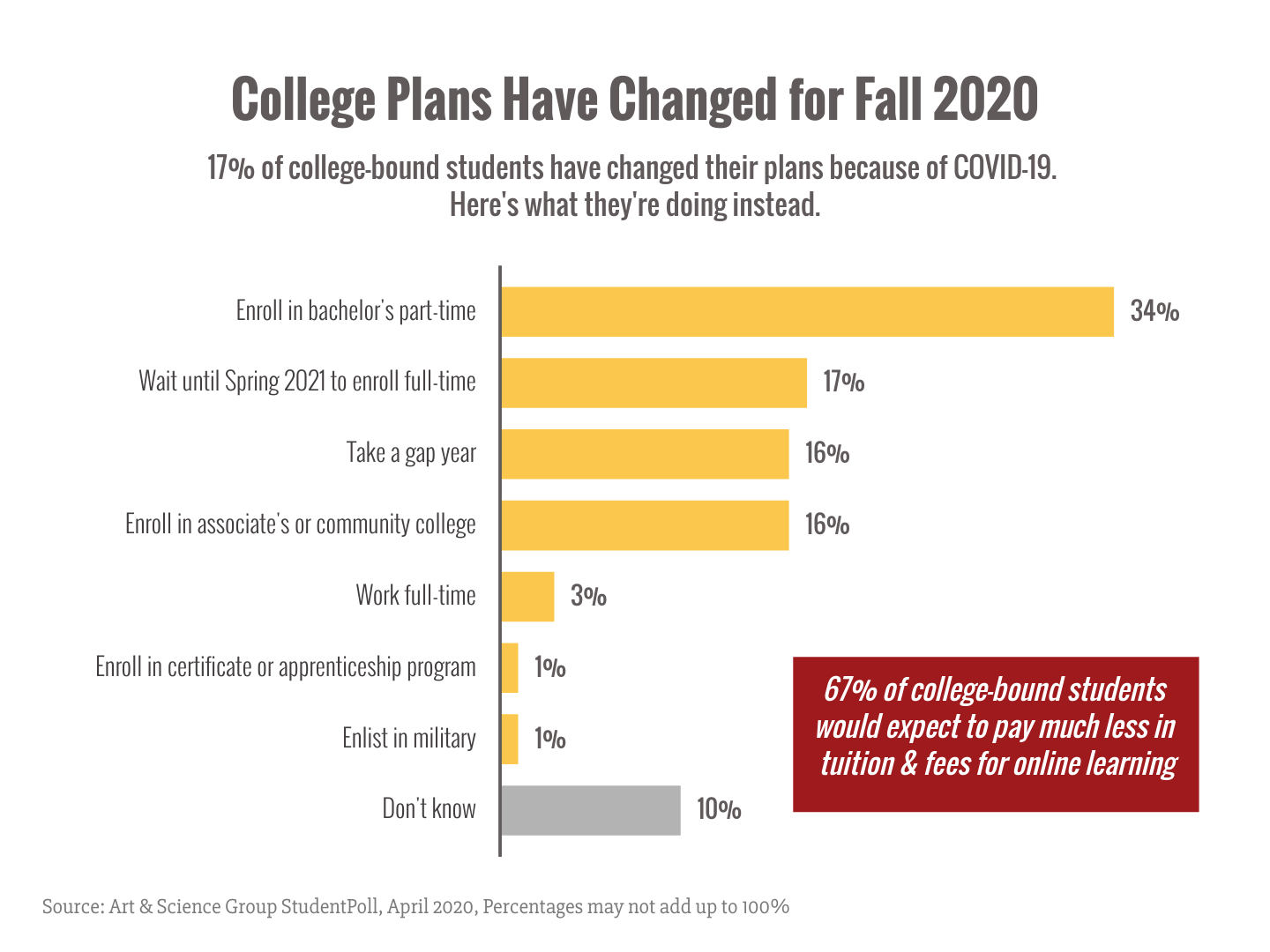Life has changed; how do we adapt without losing sight of what we want to achieve?
As you’ve heard us say before, no one knows how the future will play out, but we should still look ahead and think through the consequences of what’s happening. (More about this kind of second-order thinking ahead.)
We believe that our society and our economy are experiencing a massive paradigm shift.
We will never go back to the world we had before COVID-19, and the lens that we used to evaluate ideas, markets, economies, and personal choices over the last decade may not be sufficient for the next decade.
Here are just a few things that we see changing as a result of what’s going on now:
Social Support: 36.5 million Americans have become unemployed in two months, and the effects are rippling through families, communities, and the economy.1 The government has responded with trillions of stimulus dollars to individuals and businesses. More relief is likely to come. What does this mean for our society? Who should get a helping hand in tough times? Will we permanently expand the social safety net?
Work: Thrown into the largest work-from-home experiment in history, more workers and employers will transition to remote work post-pandemic. This shift in work has major implications. Which places will be a draw if workers can live anywhere and employers can have their pick of a nationwide (or global) workforce? Will those who must physically show up demand different compensation?
Education: Students, parents, schools, and universities are being forced to re-evaluate the definition of education (and its price tag) now that the on-campus experience has gone online. What's missing if you attend from home? How much should education cost? What alternatives to a traditional four-year degree will arise?

Shopping & Entertainment: Brick-and-mortar retailers may never recover from the body blow dealt by pandemic lockdowns. Online shopping, grocery delivery, and digital services may finally overtake offline channels. What will the retail landscape look like when it’s easier (and maybe safer) to eat, shop, and watch at home?
What do you think, Paul? What do you see changing in the world? Share your thoughts.
No one has all the answers about the new world and things are not always what they seem.
Though it appears that the stock market has moved past the pandemic, we shouldn’t celebrate just yet. Tread lightly.
Why?
Much has changed in the world and we’re still playing out first-order effects. More consequences are coming.
"What are the second- and third-order consequences of this?” is a question big thinkers like Ray Dalio (manager of the largest hedge fund in the world) ask about complex scenarios.
Here’s what they mean:
First-order thinking is fast and simple: B is the logical outcome of event A.
But then what? What happens as a consequence of B?
And what happens as a result of that? And what is the follow-on effect of that?
Second-order thinking is about interactions and complex systems. It’s slow and hard (but mastering it can put us steps ahead of the crowd).
Understanding the new world that’s growing out of the pandemic requires thinking through these higher-order consequences and developing a new lens to navigate the uncertain waters ahead.
How can we adapt? How can we still pursue our goals in a totally different world?
We think it through with humility and an open mind.
We hone our second-order thinking skills by asking: what could happen? And then what? How likely is it that I’m right? What could happen if I'm wrong? How do I position myself?
We'll do it together.
COVID-19 is going to be with us for the rest of 2020 and possibly into 2021. So we’re adapting as best we can while still providing the best possible service to you our valued clients.
At FSI Wealth Management it means we will be holding more virtual client meetings but still will offer limited office visits through at least the rest of 2020; we will always accommodate. Hopefully things will get back to normal in 2021.
It also means big changes in our personal lives, Our children are at home and are attending online college and high school through the end of the school year and possibly this fall. Our spouses will continue to work from home too, at least till the end of the 3rd quarter, we'll see what happens after that.
Our much-anticipated summer vacations are on hold indefinitely.
We’re taking it day by day and thinking through those higher-order effects.
How about you? What changes are you making to your plans this summer and fall?
Be well,
The Team At FSI Wealth
FSI Wealth Management Inc.
619-681-1911


